Politics
Extra £1.5bn for public services as Welsh Government unveils spending plans
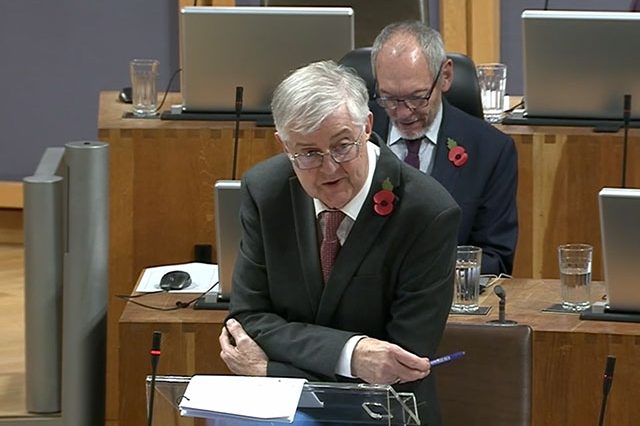
THE WELSH Government has unveiled its spending plans for next year with an additional £1.5bn allocated to public services, including an extra £610m for health and social care.
Mark Drakeford announced all government departments will receive increases in day-to-day revenue and longer-term capital funding, marking a departure from last year’s cuts.
Wales’ finance secretary described the £26bn draft budget as offering an opportunity to rebuild and reinvigorate public services after 14 difficult years.
He said: “This is a budget for a brighter future, delivering an extra £1.5bn for our public services and priorities, helping to put Wales firmly back on the path of growth….
“This is in stark contrast to the last couple of years when we have been forced to make some very difficult and painful decisions.”
The ex-First Minister added: “This is a good budget for Wales. But it will take time to reverse the damage inflicted on Wales over 14 years of neglect from previous UK administrations.”
The draft budget includes an extra £610m for health and social services, £186m to improve rail services, including the core valleys lines, and £81m to build more social housing for rent.
Councils will receive a 4.3% increase in the local government settlement.
The increases by department are as follows:
- Health: 3.8% revenue, 30% capital
- Housing and local government: 5.4% revenue, 11.2% capital
- Education: 4.9% revenue, 8.1% capital
- Transport: 12% revenue, 10.7% capital
- Climate change and rural affairs: 6.6% revenue, 31% capital
- Economy, energy and planning: 4.3% revenue, 59.1% capital
- Social justice: 4.7% revenue, 23% capital
- Central services and administration: 7.4% revenue, 47% capital
Welsh rates of income tax will remain unchanged, with taxpayers continuing to pay the same rates as in England and Northern Ireland.
However, the Welsh Government announced that higher residential rates of land transaction tax – Wales’ equivalent of stamp duty – will increase by 1%, raising an extra £7m.
The standard rate of landfill disposal tax will also rise to reduce waste and boost recycling.
The big question is how the Welsh Government will pass its budget, with parliamentary arithmetic in the Senedd on a knife-edge and Labour one seat short of a majority.

Eluned Morgan, who has warned Wales could lose out on £1bn if opposition parties do not support the spending plans, will need to cut a deal with at least one opposition member.
Previous budgets have been passed with the help of Plaid Cymru, Liberal Democrat and independent Senedd Members, with a deal with the Conservatives seeming unlikely.
Plaid Cymru backed the Welsh Government’s budget in recent years in return for 46 commitments but the cooperation deal between the two collapsed in October 2023.
The First Minister could also reach out to Jane Dodds, the Lib Dems’ leader in Wales and the party’s sole Senedd Member, or Rhys ab Owen, who sits as an independent.

Senedd Members need to agree a motion on Welsh rates of income tax (Writ), which are forecast to raise about £3.3bn in 2025/26, before the budget can be passed.
Writ defaults to zero if a motion cannot be passed, meaning basic, higher and additional rates would decrease by 10p in the £1 for Welsh taxpayers.
If the annual budget motion is not agreed by the start of the financial year in April, the budget of the Welsh Government would revert to 75% of the previous year’s.
This would also affect directly funded bodies such as the Senedd, Public Services Ombudsman, Wales Audit Office and the Electoral Commission.
If a motion is still not agreed by the end of July, the budget rises to 95%.
Mark Drakeford will lead a debate on the draft budget in the debating chamber or Siambr, which will be broadcast live on Senedd.TV from about 2.50pm today.
He will also appear before the Welsh Parliament’s finance committee on Thursday morning to face questions about the spending plans for the 12 months from April.
Senedd Members will then scrutinise the draft budget through December and January.
Committees will take evidence from witnesses including the Office for Budget Responsibility, Institute for Fiscal Studies, Wales Fiscal Analysis, Bevan Foundation and Citizens’ Advice.
Based on this evidence, committees will publish scrutiny reports by February 3.
A further debate on the draft budget will be held the following day, with the final budget set to be published on February 25 and a crunch vote to follow on March 4.
Navigating this year’s budget process will be a key test for Wales’ new First Minister, with the next Senedd election looming in less than 18 months in May 2026.
Politics
Ceredigion council tax expected to rise by 4.7 per cent

A BETTER financial settlement for Ceredigion from the Welsh Government along with a fresh grant is expected to see council tax bills in the county rising by less than five per cent this year, far below previous fears of a rise as high as nearly nine.
Last year, for the 2025-’26 budget, Ceredigion saw a council tax rise of 9.3 per cent.
While council tax makes up a proportion of the council’s annual revenue, a crucial area of funding is the Aggregate External Finance (AEF) rate from Welsh Government.
Ceredigion was to receive a 2.3 per cent increase on its settlement, some £3,388,000 for a total of £150,670,000, placing it at joint 13th of the 22 local authorities in Wales.
Following a later Welsh Government and Plaid Cymru agreement additional funding for local government was secured, giving Ceredigion additional funding.
Back in November, before the increased settlement was announced, Ceredigion Leader Cllr Bryan Davies said that early estimates indicated that an 8.9 per cent increase in council tax would be necessary, but an improved position of 6.9 per cent had been indicated as a result of a further modelling of service cost pressures and operational savings.
Following the improved settlement, members at the January meeting of Cabinet heard from Cabinet Member for Finance and Procurement Services Cllr Gareth Davies a recommendation for a 4.75 per cent council tax increase as part of a draft budget requirement of £221.493m was being mooted.
That position has improved again, following financial support towards the Mid and West Wales Fire Service Levy, members of the February 3 meeting of the council’s corporate resources overview and scrutiny committee heard, the funding now dropping the expected council tax increase to 4.7 per cent, equivalent to an extra £7.39 per month for the average Band D property for the next financial year.
Members of the committee agreed to note the 4.7 per cent figure, with the final council tax recommendation being considered by Cabinet on February 10; the final decision on the budget being made by full council on March 2.
international news
Mandelson quits Lords amid police probe over Epstein links
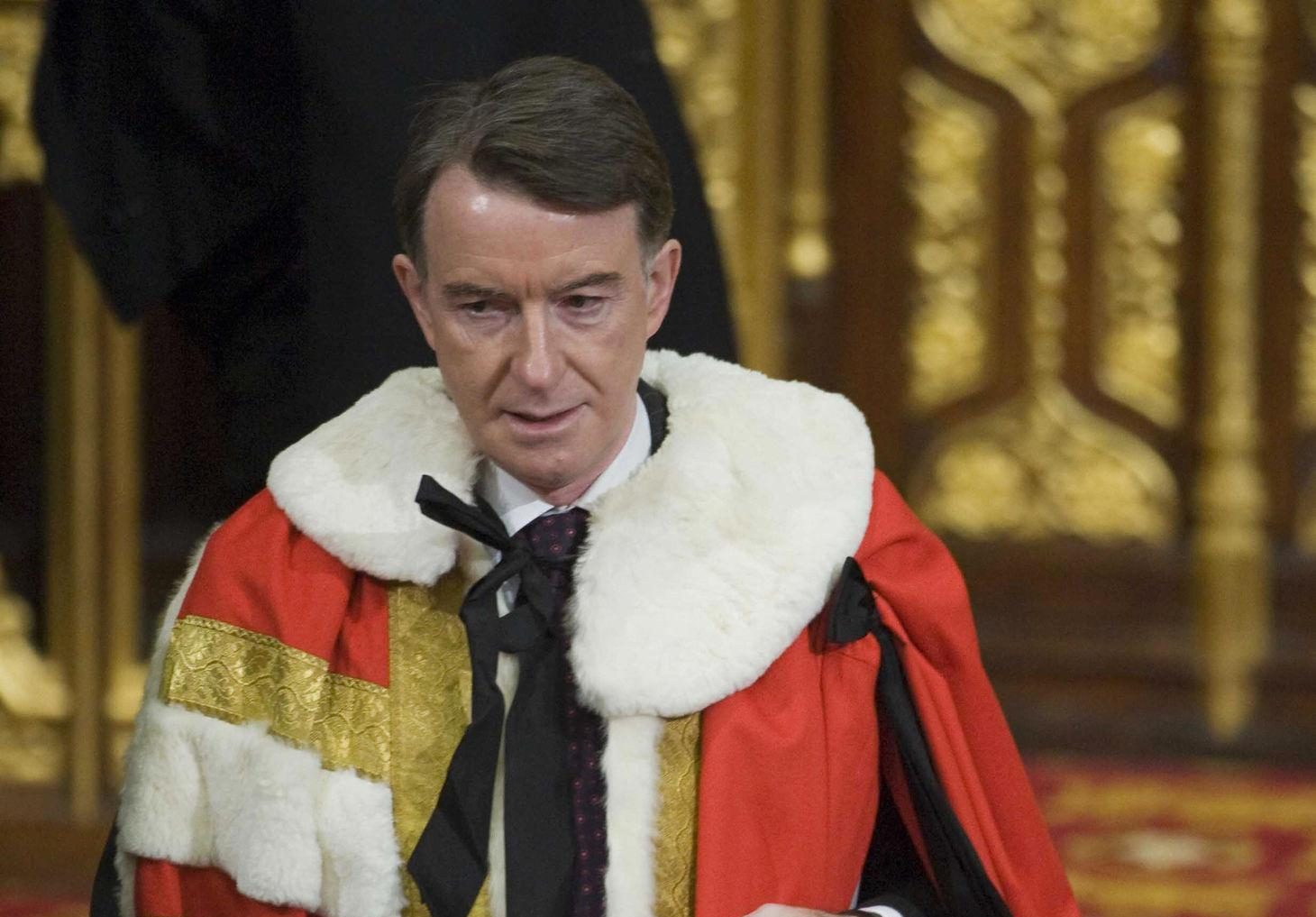
Peter Mandelson has announced he will retire from the House of Lords with immediate effect, as mounting political and legal pressure grows over claims he shared sensitive government information with convicted sex offender Jeffrey Epstein.
Parliamentary officials confirmed that Peter Mandelson formally notified the Clerk of the Parliaments of his decision, ending his membership of the upper chamber from Tuesday (Feb 4).
The move follows reports that the Metropolitan Police Service is reviewing allegations of possible misconduct in public office connected to emails said to have been forwarded to Epstein while Mandelson was business secretary during the 2008–09 financial crisis.
Downing Street has confirmed that material has been passed to police after an initial Cabinet Office review.
Government fury
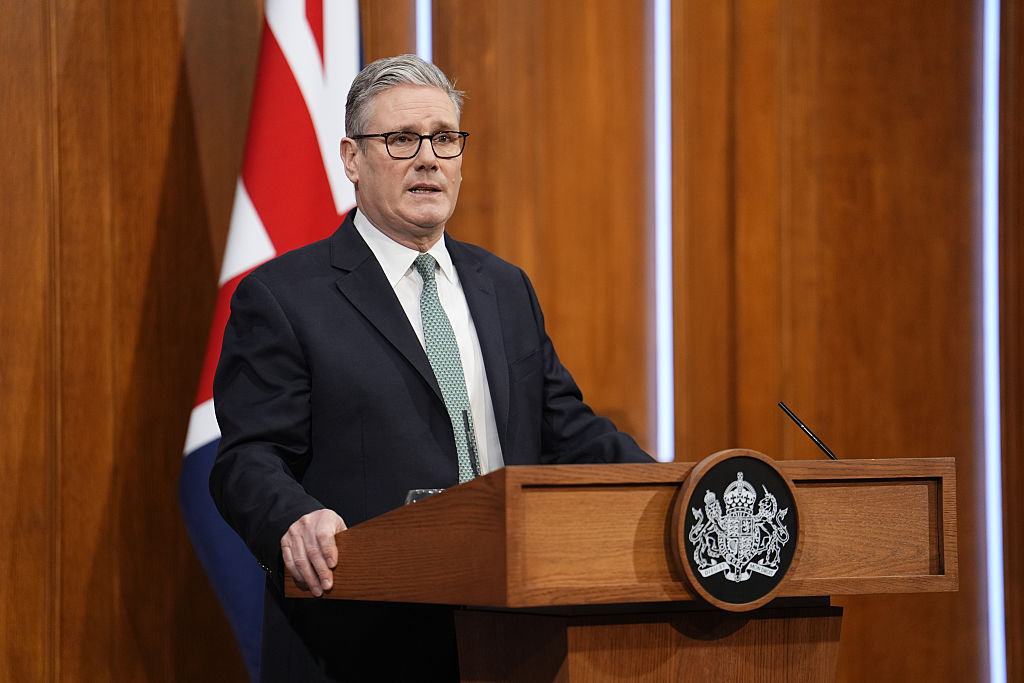
Prime Minister Keir Starmer told cabinet colleagues Mandelson had “let his country down”, according to No 10, and officials are now drafting legislation that could strip him of his peerage entirely.
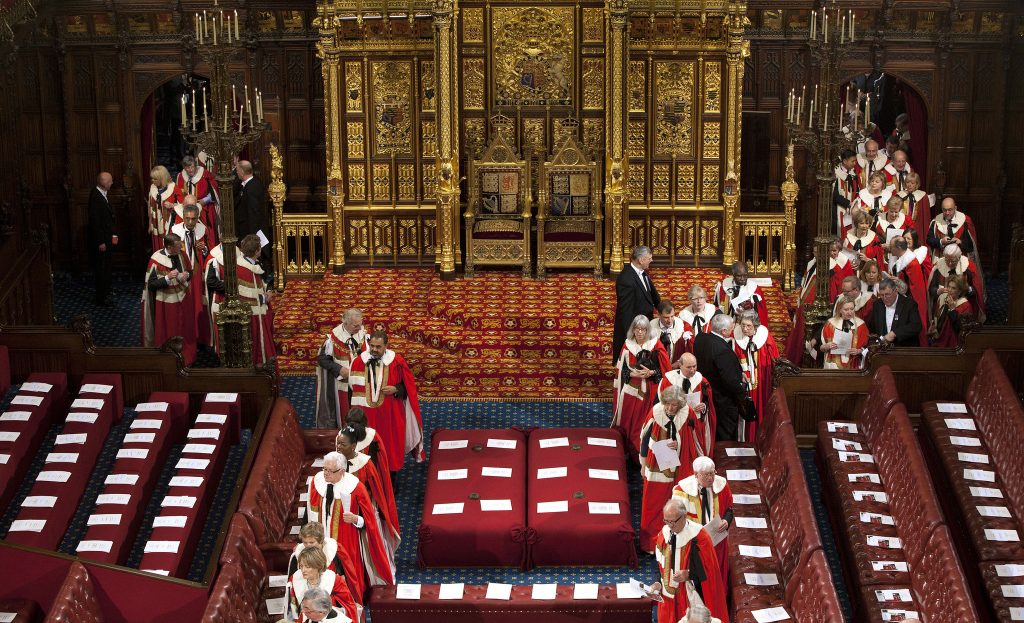
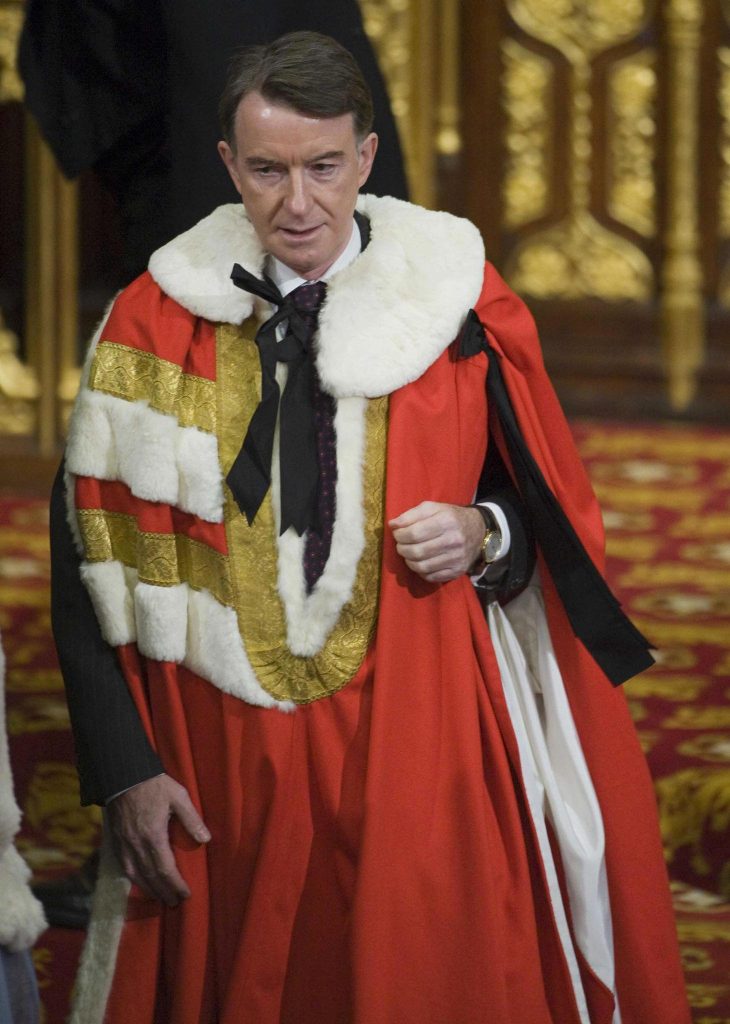
Removing a life peer is rare and would require an Act of Parliament.
If passed, Mandelson would lose the title “Lord” altogether — an extraordinary step that has only been considered in the most serious cases.
Senior ministers have described the alleged passing-on of market-sensitive government discussions as “disgraceful” and a “betrayal of trust”.
What police are examining
Misconduct in public office is a centuries-old common law offence that applies where someone in a position of public trust wilfully abuses that role. It carries a maximum sentence of life imprisonment.
Investigators will assess whether confidential information — particularly relating to government financial policy during the crash — was shared without justification and whether safeguards were breached.
At this stage, no charges have been brought.
Mandelson has previously apologised for maintaining contact with Epstein after the financier’s conviction, saying he regrets “ever having known him”, but he has disputed some of the latest claims and has not commented directly on the police review.
Political shockwaves
Opposition parties are pushing for further disclosure of documents relating to Mandelson’s vetting and his past roles.
Conservatives are expected to force a Commons vote demanding more information, while Liberal Democrats have called for a public inquiry.
Several MPs have also suggested Mandelson should be removed from the Privy Council.
The developments mark a dramatic fall for one of Labour’s most influential political figures of the past three decades, who only months ago was serving as the UK’s ambassador to Washington.
Now, with police examining evidence and legislation being prepared to remove his title, his public career appears effectively over.
More updates are expected as the investigation continues.
Community
Cilgerran Church in Wales school petition to be heard

A PETITION opposing proposed changes for a north Pembrokeshire school is to be heard by councillors later this week.
At last May’s meeting, Pembrokeshire County Council considered a report of the School Modernisation Working Group which outlined the findings of a review of education provision in the Preseli area.
A later July meeting backed a general consultation to discontinue Cilgerran Church in Wales Voluntary Controlled School, and to establish it as a 3-11 community school.
“In particular, the review considered the extent of surplus school places in the area, set against a significant decline in the pupil population,” the council in its consultation has said.
The consultation closed on January 30.
Hundreds have opposed the proposed changes, with a petition, on the council’s own website opposing the changes recently closing after gaining 391 signatures.
Any petition of more than 100 signatures triggers a debate at one of the council’s scrutiny committees, in the case of Cilgerran that debate taking place at Pembrokeshire County Council’s February 5 schools and learning overview and scrutiny committee.
The Cilgerran e-petition, created by Louise Williams, raised concerns including the school could become part of a federation, a loss of permanent head teacher on site, a shared head teacher would have to oversee several schools, loss of funding control and the ability to maintain the school’s current healthy and stable funding, and a loss of commitment to the church, in turn could impact on the school’s and pupils values, beliefs and cultural beliefs.
It said: “Ysgol Cilgerran VC school has strong links with the Church community in Cilgerran and we believe this will have a negative impact on the children who attend the school, the community of Cilgerran and the links between the two.
“We are proud of our school ethos and values which are strengthened by our links with the church. The school has close and strong relationships with our Church in Wales federation governors one of which is also our safeguarding governor.
“Our Church Federation governors work closely with the school and are regular visitors to the school and the children. They provide vital support and guidance to the school and have a positive impact on the Children’s education. We believe these links will be weakened by this proposal to remove our VC status and we believe this is an un-necessary action.”
The proposals for Cilgerran are part of a wide range of potential education changes in the county.
Two petitions, opposing the potential closures of Manorbier and Ysgol Clydau schools, were recently heard at full council and a further petition opposing the potential closure of Stepaside School has recently been launched, which has generated enough support to be heard at a future council meeting.
-

 Health6 days ago
Health6 days agoConsultation reveals lack of public trust in health board
-

 News7 days ago
News7 days agoCaldey still unsafe, survivors warn — despite Abbey’s reform claims
-

 Community6 days ago
Community6 days agoPembrokeshire students speak at national Holocaust Memorial Day event
-

 News17 hours ago
News17 hours agoPrincess of Wales visits historic Pembrokeshire woollen mill
-

 News7 days ago
News7 days agoKurtz raises Gumfreston flooding in the Senedd as petition deadline nears
-

 Crime5 days ago
Crime5 days agoPembroke man accused of child sex offences sent to Swansea Crown Court
-

 Education7 days ago
Education7 days ago‘Vulnerable teen’ questioned by police at Milford Haven School
-

 Education7 days ago
Education7 days agoAttendance concerns at Milford School reflect wider issue raised at the Senedd





























